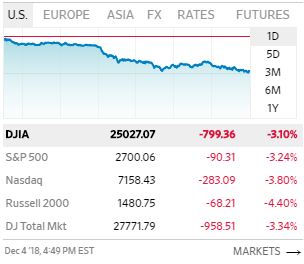
Blink again and all the large extractive projects have new owners
A meeting of mining and financing experts in Australia produced a serious difference of opinion between some of the delegates.
On the first day of the Africa Down Under conference in Perth, Western Australia Premier, Colin Barnett was quoted as saying that Africans must not be intimidated by global mining companies. “Resource companies would always pursue resource deposits and African nations needed the courage and political will to refrain from subsidising the minerals industry” according to the Premier.
Of course, this created a stink, and only the next day, a lawyer who is an expert in resource financing and mining contracts, told the delegates “the golden goose did not have golden eggs just for the taking” indicating that African projects are suffering from credibility issues, and that Australia’s focus on equity investment in mining has shifted to South America.
“In reality, investment capital is limited and its placement is regardless of what governments want, only what shareholders want for their investment,” lawyer Michael Blakiston was quoted as saying.
Sitting many thousands of miles away from the Paydirt, Africa Down Under conference I found it entertaining that one speaker told us, do not be intimidated, while short on his heels, another respondent said, There is no more money.
The reality for us in Africa is that both these gentleman are equally right and equally wrong. The lawyer is certainly right in the sense that investors have become very critical over where they put their buck, but he is dead wrong when he infers that it has anything to do with the inherent qualities, or lack of it, in any particular African country or project. It has far more to do with the fall-out of the financial crisis than with what we can offer. Resource projects have not come under pressure because of politics, they are beleaguered because speculators played dingbat with commodity prices and now the latecomers have to bear the consequences.
I must admit, it is nice to hear a Premier telling us we must not be intimidated by large mining conglomerates. But this sentiment is far too fluffy to stand up in the real world. We admire his gullibility to believe that African government are always good and mining investors always bad, but that is as irrelevant as last year’s rain. Yet, the mere fact that he dared say it on a public platform indicates that this notion is probably more ubiquitous than one would care to admit.
In Africa, we have already moved beyond both these conflicting points of view. Mining projects are driven by sensible people and, as with any investment whatsoever, due diligence should be a normal way of approach. And despite the fact that the top five international conglomerates are certainly behemoths with much more muscle than any African government can muster, the current mining environment, seen from both parties, is more reflective of a partnership, than of exploitation.
But there is a third (relatively new) component in resource and commodity development and I do not get the impression this was clearly relayed to the conference delegates. This component has only one name: China.
Not keen to attract too much attention and not subject to conventional financing models, Chinese investors, regardless of their government connections, are eagerly waiting in the wings with both capital and expertise, to step into any worthwhile extractive project deemed unworthy by the Aussies. In a sense, the sentiments expressed at the conference are archaic and smack of an outdated old-fashioned investment mindset.
China needs the energy and it needs the minerals to power its manufacturing base. It has to serve its own economy first before it can consider any agreements with foreign (Australian) investors.
To reach its own compulsory development goals, the Chinese government needs to go where it finds willing partners and available resources that are sufficiently rich to merit the mega-investments their many parastatal mining and energy companies are making on the continent. The Chinese’s own agenda prevents them from considering any market trends or sentiment originating in markets other than their own.
When the Aussies have woken up to the reality of Chinese industrial demand and financial power, then will they realise how many opportunities they have forfeited, waiting for prices to complete cycles, and for investors to change their minds. China’s need for energy, for instance, is not determined by market conditions, it creates them.














































